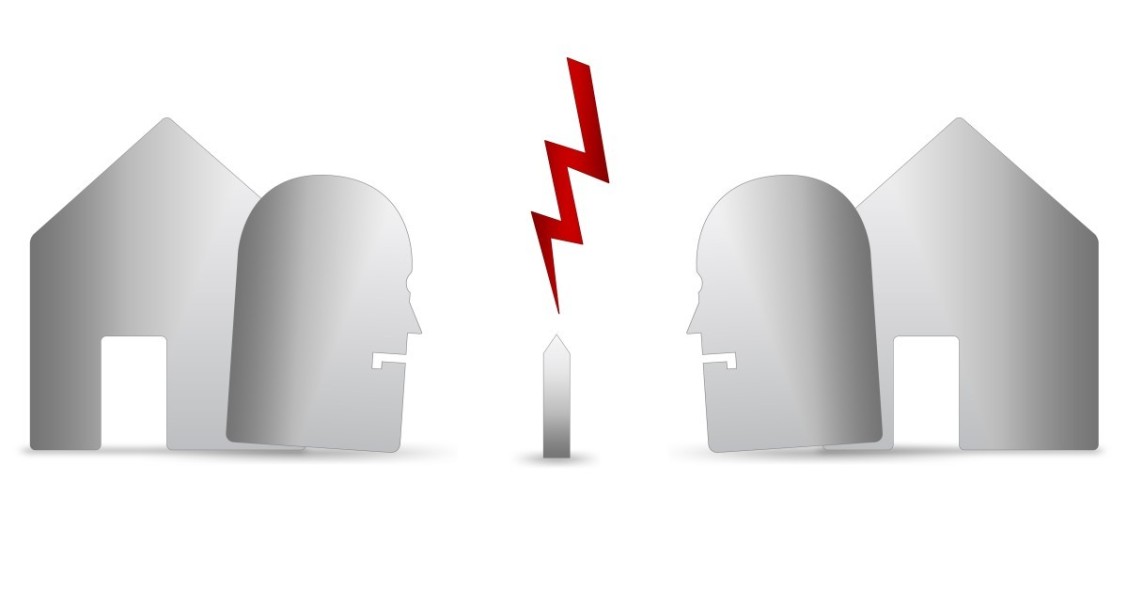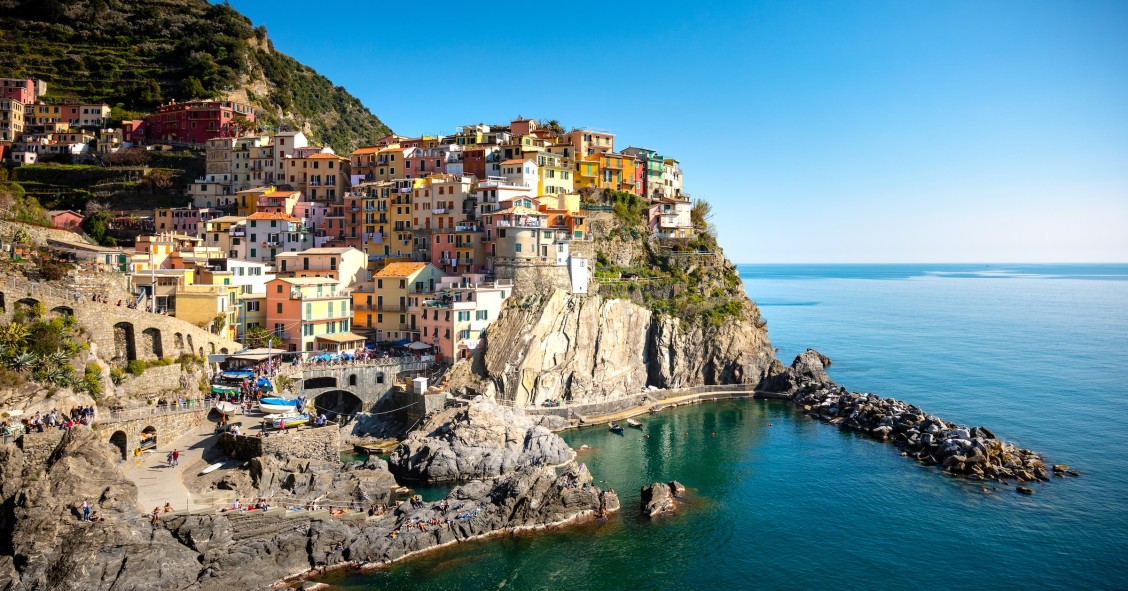
Let's be honest; who hasn't imagined at some point of building house of their dreams from the ground up? But if you want to actually follow through on those dreams and do it, you have to be aware that it is a difficult process. To understand just how complex it is, idealista/news has prepared a comprehensive guide on how to build a house from scratch in Italy. To illustrate the process, we will take as an example a hypothetical 100 sqm property, at street level, to see how much it can cost and what permits are needed to build it.
Making a calculation of all the expenses necessary to build a house from scratch is complicated, because many prices vary depending on the location in Italy, and even the particular neighbourhood. However, you can still make an estimate of the approximate budget that you will have to have at your disposal. In the following, you will also find out all the necessary permits and the bureaucratic process required to build a house in Italy.
Getting down to the details; the house we are going to build is a detached house, i.e. at ground level, and on the outskirts of a town or village. This is because, to build a house from scratch, you first need land, and in large urban centres there is no space to build. The planned size is 100 square metres, a size which, all things considered, meets the needs of everyone (or almost everyone).
Buying land
The first step in building a house from scratch is to choose the area on which the property of your dreams will be built. If you do not already own a property, you need to buy a building plot. The cost per square metre varies depending on the municipality and the exact location (whether or not it is close to urban centres or tourist resorts, etc.), but in any case it represents a significant portion of the final cost of the house (between 20 and 30%).
Building land is not included in the real estate categories drawn up by the Agenzie delle Entrate through OMI quotations. Generally speaking, however, the costs are around 600 euros/sqm in the north of italy, 650 euros/sqm in the centre, and 480 euros/sqm in the south.
As far as the registration tax is concerned, the amount to be paid is 9% of the value of the building land purchased (i.e. on the price paid and not on the cadastral value of the property as is the case for the purchase of a house). The mortgage and cadastral tax, if you buy from a private individual, is 50 euros each (fixed value).
If you buy building land from a company, on the other hand, you do not have to pay the registration tax, but the Value Added Tax (VAT) at the rate of 22%, always on the purchase price of the land.
For the purchase of building land there are no benefits if it is your first home. However, the legislation provides that a private individual who builds his own home on a piece of land he owns, contracting the work to a building company, can pay VAT at the facilitated rate of 4% calculated on the value of the contract.
Permits for building a house
Before applying for the actual building permit, a bureaucratic process must be followed to ensure that you can actually build a house on the building land you own or want to buy.
Regulatory plan
Before starting on your house project, you must consult the Municipal Regulatory Plan (Piano Regolatore Comunale), which sets out the development plan for the municipality in which you want to build. This document regulates building activity in the area. In order to be able to build a house, the land you own must be part of the so-called 'residential zone' of the zoning plan.
Detailed Plan
Next, you should also consult the Detailed Plan (Piano Particolareggiato), which is the document that accompanies the Municipal Regulatory Plan and shows whether the plot you own is intended for public works such as squares, car parks or other uses. Of course to build there the land must not be earmarked for other uses.
Additional permits and restrictions
Before submitting the project to apply for a building permit, it is also necessary to consult the Building Index of the area in which the plot is located (this tells you the exact measurement in cubic metres of how much you can build per square metre of plot).
Not only that, but there are several more details and restrictions that must be respected. These include the minimum distances to be maintained between one property and another; the Coverage Ratio, i.e. the percentage of the lot that can be covered; the height that the building can reach; and the distance the building must be from the road (if one is present).
To all of these constraints on the building's dimensions, there are more to which the building may be subjected, such as, for example, seismic and hydrogeological constraints, as well as the constraints of the Superintendence of Fine Arts, the health and hygiene branch of the ASL. Another cost to be considered is that of the geological survey.
The geological survey is carried out by a geologist and serves to provide a technical basis for the stability and suitability of the terrain prior to the excavation work that will preceed the new construction. A geological report is not needed when there is already a signed survey for the land on which you want to build. It tends to cost between 500 and 2,500-3,000 euros, depending on the complexity of the work.
Building permit
Now, finally we reach the actual building permit: in order to apply for a building permit, it is necessary to delegate the design of the building you intend to construct to a fully qualified professional.
The Building Permit must be applied for at the Sportello Unico dell'Edilizia of the municipality in which the building to be built is located. The following documents must be attached to the application
- Stamped application, drawn up according to the model issued by the technical office;
- General blueprint;
- Volume calculations;
- Tables of illuminating surfaces;
- Technical report;
- Report on architectural obstructions;
- Report on the conformity of the installations;
- Metric calculations;
- Proof of ownership;
- Document proving payment of secretarial fees.
The Building Permit is by far the most expensive permit you will need, although it varies from case to case and depends very much on the fee charged by the qualified professional. Generally speaking, for a new 100 sq. m. house the bureaucratic costs are in the order of 1,250 to 3,000 euro. Meanwhile, the technician's fee can vary greatly, anywhere between 750 and 3,000 euros. As far as urbanisation and construction charges are concerned, the outlay can be between 250 and 750 euros per 10 square metres.
Construction phase
Once the building permit has been obtained, it is time to build the house, following all the construction phases. Starting with the excavation and foundations, which for a 100 square metre house without any particular complications will cost between 10,000 and 20,000 euros.
Next, the construction of the load-bearing structure can cost, depending on the level of anti-seismic standards, between 25,000 and 50,000 euros. 20,000 to 30,000 euros must also be added for the roof and thermal insulation. An electrical system that complies with the law and includes lighting points, a fuse box, wiring, and the necessary certifications, will cost somewhere between 4,000 and 6,000 euros.
The plumbing system for the kitchen and bathroom costs about 2,500 euros, while the heating system can cost over 10,000 euros depending on the technology used. For masonry work, finishes and connections the cost varies greatly depending on the choice of materials, but it tends to be around 15,000 euros.
When it comes to windows and doors it's better not to try and cut costs, as quality fittings here will better insulate the house and save you money in the long term. Together these can cost about 40,000 euros. Another fixed cost is that for the various connections for sewerage, water, gas and electricity supplies: about 3,000 euros.
Other costs that must be considered in the construction of a new house are the certificate of fitness for habitability, which varies between 600 and 5,000 euros depending on the size, as well as the cost of registration in the land register, between 1,000 and 2,000 euros depending on the case. In addition, a notary will also have to be consulted for public deeds and registration in the property register, which costs about 0.5 % of the value of the property.






